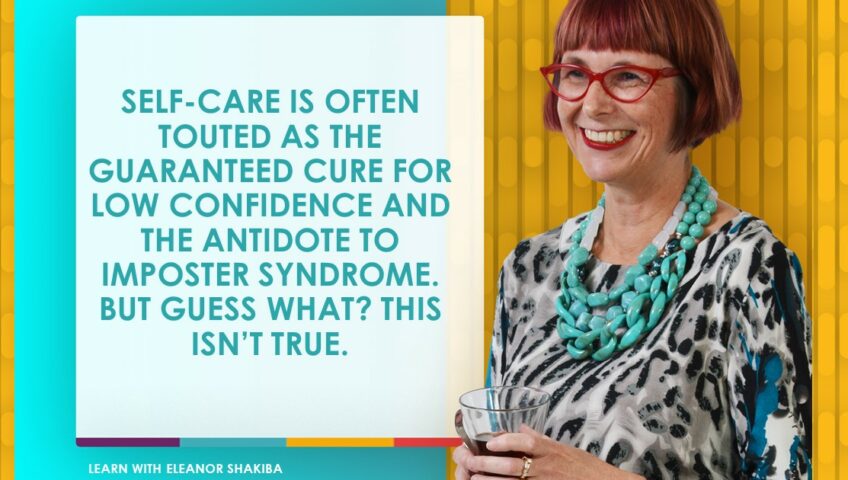Self-care is often touted as the guaranteed cure for low confidence and the antidote to imposter syndrome. But guess what? This isn’t true. Just like it’s foolish to take antibiotics for every little ache and pain, it’s silly to apply generic self-care practices as a cure for low confidence. How I’m not saying self-care is a bad thing. However, some self-care practices are more likely to damage your confidence than build it. Four of these are very common
Habit 1: Using minimising language
Some words unconsciously minimise your message and destroy your credibility. But many people (especially women) use these words in a vain attempt to fit in. For example, imagine a conference speaker who starts her presentation with the words “This isn’t really my area of expertise”. She certainly doesn’t sound confident and I bet she doesn’t feel confident, either.
Habit 2: staying in your comfort zone
I get it. You’ve been told that looking after yourself means reducing stress and saying ‘no’ to overloading yourself. Unfortunately, if you have low confidence this is the worst advice you can take, because it stops you learning. Believe it or not, confidence increases as your willingness to learn builds. So, start challenging your assumptions about what’s possible and move into the learning zone.
Habit 3: Critiquing yourself all the time
Okay. Critiquing your own performance can be a great way to build your motivation to do better. But when done excessively, self-critique turns into self-criticism. It quickly erodes your self-confidence. Plus, it turns into a habit which can be challenging to break. Resist the temptation to look for what you ‘should’ be doing better. Instead, focus on putting your strengths and passions to good use as a leader. Work with a coach or mentor if you need help doing this.
Free e-book and video tips.Get your copy today!
|
|
Habit 4: Making contingency plans for everything
Yes, it does make sense to have backup plans for important parts of your life and work. But having ‘just in case’ plans for everything is a clear sign that your need for control is …out of control. Remember that confidence doesn’t come from being in control. It is stronger when you believe in your own coping skills. Build those and suddenly confidence will be your default state.
Of course, self-care is important. However, it is important to make sure you’re practicing the right kind of self-care. Poor self-care habits can damage your confidence and stop you from building the skills you need to be successful. It’s time to break these habits and become a confident leader. Are you ready? Let’s get started!
This article was created by Eleanor Shakiba
Eleanor is a leadership trainer and success coach. Her mission is inspiring talented people to become leaders who make a difference. Since discovering her passion for training and development, Eleanor has trained more than 60,000 people. She delivers face-to-face workshops for corporates, online masterclasses for leaders and Positive Psychology retreats for trainers, HR practitioners and leaders.

